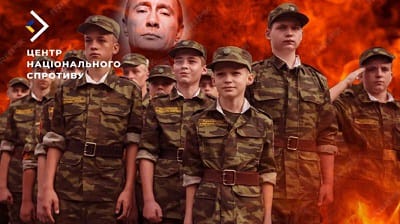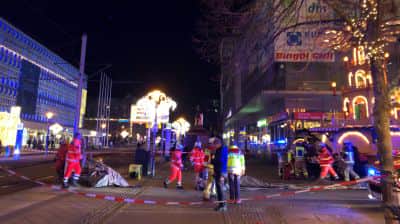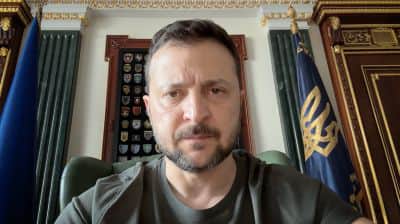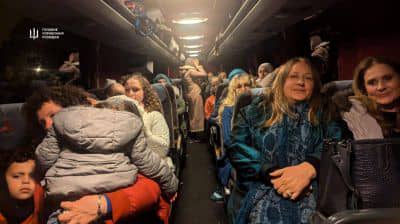No evidence of prisoners on board Il-76: Ukraine wants to investigate, Russia to hide – Human Rights Commissioner
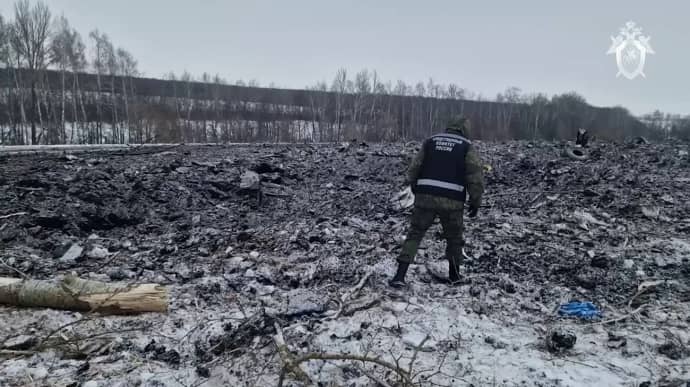
There is no reason to believe that there were Ukrainian prisoners of war on board the Russian Il-76 plane that crashed near Belgorod on 24 January; Russia is not allowing international experts to investigate and can continue to accuse Ukraine of causing the deaths of Ukrainians without proof.
Source: Dmytro Lubinets, Verkhovna Rada Commissioner for Human Rights, in an interview for Voice Of America
Quote from Lubinets: "I have no reason to believe that there were Ukrainian prisoners of war on board, and there are no arguments to refute this. We demand an international investigation. If there really were prisoners of war on board, their bodies would be near the wreckage, and Russia would have made use of that. That hasn't happened – so there was probably nothing to show.
I feel a sense of déjà vu – a point-for-point coincidence with the Olenivka tragedy. This is another attempt to launch an information campaign against our state using prisoners of war.
This is not the first information campaign launched by the Russians, and it won’t be the last. I assume that this disaster was intended to discredit the military assistance that Ukraine receives."
Details: Lubinets said he had immediately written an urgent letter to the United Nations and the International Committee of the Red Cross. Ukraine is waiting for the outcome of a transparent, comprehensive international investigation, but there has been no response from the ICRC.
Regarding the fate of the prisoners of war whose names appeared on lists published in Russia, Lubinets replied that "there is no information".
Quote: "To obtain information, we need the Russians to want to provide it or for our international partners to want to put pressure on the Russians and demand explanations and access to our citizens who are in captivity.
Unfortunately, I am constantly documenting instances of the International Committee of the Red Cross not fulfilling its mandate and not demanding anything from the Russians.
I very much hope that by being here in the United States, the country that is the ICRC’s largest donor, we will be able to encourage representatives of the United States to communicate with representatives of the Red Cross.
If there is only one organisation in the world with a unique mandate to protect the rights of prisoners of war, then we expect this organisation to respond as quickly as possible.
My reaction was instant – I wrote an official letter and hoped there would be an equally swift response from this international organisation. Unfortunately that didnʼt happen."
Details: Lubinets noted the absurdity of the situation: Russia is a permanent member of the UN Security Council, yet it "deliberately and openly flouts all the provisions of the UN Charter and the Geneva Conventions".
He recalled the situation with Olenivka, where Ukrainian prisoners of war were killed: he tried for five months to meet with the UN monitoring mission to present Ukraine’s evidence, but they would never meet him, and then "without any explanation, the assistant secretary general appeared at a press conference and said they were closing the mission". When a journalist asked directly whether this was because the Russians would not allow UN representatives to visit Olenivka, the answer was "No comment."
Quote: "Will there be the same reaction to the case of the Il-76? Probably. But we will continue to demand that the international community be involved in the investigation. This demonstrates our openness – we are not afraid of an investigation, we are asking for one to be conducted.
What will the Russians do? In my opinion, no one will be allowed in, everything will be hidden, they’ll say that Ukraine is to blame for everything, and they will continue [to repeat] their mantra about Ukraine being responsible for the murders of Ukrainian citizens without any evidence."
Why this is important: Ukraine does not deny the downing of the IL-76 military transport plane in Russia, but cannot confirm whether there were 65 Ukrainian prisoners of war on board, as Russia claims.
Background:
- On 24 January, a Russian Il-76 aircraft crashed in Russia's Belgorod Oblast. Ukrainska Pravda sources in the General Staff of the Armed Forces of Ukraine stated the plane was carrying S-300 anti-aircraft missiles. The Russian Defence Ministry said the plane was transporting Ukrainian prisoners of war to Belgorod for a swap. According to the Russian Ministry of Defence, two Ukrainian missiles were "fired", killing 74 people, including 65 Ukrainian POWs.
- Russian propagandist Margarita Simonyan published a list of the Ukrainian prisoners of war who she alleges were on board the Il-76 aircraft that crashed. Only the names of the six dead crew members are known to the media.
- Defence Intelligence of Ukraine confirmed that the swap scheduled for 24 January did not take place, but they had no information about the Ukrainian prisoners on board the Il-76. In the previous swap, prisoners had been delivered by plane, but Ukraine had been made aware of that in advance.
- The General Staff of the Armed Forces of Ukraine said, without mentioning the Il-76, that it was taking all measures to protect Ukraine and Ukrainians.
- Andrii Yusov, a representative of Ukraine’s Defence Intelligence, said that Russian officials were supposed to be on board the Il-76, but at the last minute, the FSB forbade them to board. He said only five bodies were delivered to the local morgue after the incident. Yusov also suggested that the plane could have been carrying both missiles and people.
- Russia has not provided the UN Security Council with any evidence that Ukrainian prisoners of war were on board the Il-76 aircraft, and has rejected the demand for an international commission to investigate the incident that occured near Belgorod on 24 January.
Support UP or become our patron!
